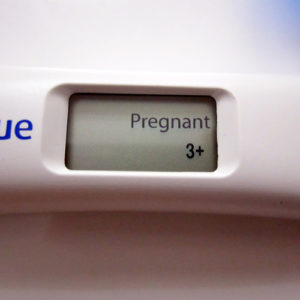The Ethics of Choosing Your Baby’s Sex
Deciding whether to find out your baby’s sex before the birth is a common question facing expectant parents. But what about going further and actually selecting the sex of your baby? Recent scientific developments are making this a real possibility for some families. However, it raises ethical questions that society is grappling with.
Historically, folklore has claimed that factors like diet or timing of intercourse could influence whether you conceive a boy or girl. In reality, this was not grounded in solid science. But research into human conception has now revealed some truths that could promote sex selection.
We now know that sperm carrying the X chromosome (leading to girls) tend to be hardier but slower. Meanwhile, sperm that will create boys with the Y chromosome are lighter and swim faster. This means intercourse closer to ovulation favours the faster male sperm.
So while still not an exact science, couples with a strong gender preference could try and ‘sway’ the odds through careful timing. In fact, Google search trends show strong interest in this approach. In the UK, Australia and other countries, 60% look for “how to conceive a girl“, while in the US more search for “how to conceive a boy“.
However, for couples who want as close to a guarantee as possible, simply timing conception may not be enough. And this is where the ethical debates come in.
Scientists in Japan have developed a method to separate X and Y sperm, enabling implantation of only the desired type. Currently this is aimed at animal breeding, but could easily be applied to humans through IVF treatment. Some private clinics already offer this controversial service.
Proponents argue sex selection helps prevent sex-biased abortions and that parents should have autonomy over their family planning.
But the United Nations and World Health Organization have raised concerns that it could unbalance male-female ratios in countries where sons are more prized. This has already occurred in nations where sex-selective abortion is common.
Sex-selective IVF is banned in the UK, but permitted in Cyprus and the US. So it remains contentious both in ethics and legality.
Search Trends Show Strong Interest
So how common is the desire to select your baby’s sex? Well, search engine trends provide some insight into what people wonder about in private.
In the UK, Australia, Ireland and the Philippines between 50-60% of searches are people wanting to learn how to conceive a girl.
The opposite is true in the US and Canada, where 10% more search for having a boy.
Other countries show even stronger gender preference. In Kenya 64% want to know how to have a boy baby, rising to 76% in Nigeria.
Of course, searching does not always translate into actions taken. But the strong interest globally implies many hope to influence their child’s sex through some means. For a minority, assisted conception or travelling abroad to access sex selection services could be appealing options.
The Science Making It Possible
So what scientific developments are fuelling this possibility for sex choosing?
Firstly, our understanding of conception biology has allowed the natural method of timing intercourse precisely around ovulation. As explained above, this can slightly sway the probabilities towards one gender.
Secondly, breakthroughs now enable sperm sorting by sex chromosome with great accuracy. A Japanese team discovered how to exploit the fact X sperm bear a molecule making them slower swimmers. A chemical trigger separates the faster Y sperm, resulting in two samples divided cleanly by gender.
This builds on previous techniques like MicroSort – a sperm sorting method using dye to detect DNA differences between X and Y sperm. However, the new approach is simpler, cheaper and achieves better results.
These methods make it possible to implant only sperm carrying the desired chromosomes through IVF. Pre-implantation genetic diagnosis can also be used to select embryos of the preferred sex.
For now, human use remains controversial. But the science itself is simple and effective, meaning broader access could be hard to prevent. This reality may force societies to confront the ethical questions sooner rather than later.
Weighing Up The Debate
There are heartfelt arguments on both sides of this debate.
Some believe sex selection allows people to fulfill their family wishes. And that responsible use could prevent the termination of pregnancies carrying an unwanted sex.
Others see this as a harmful step towards “designer babies” and commodifying human reproduction. Limiting such ethically difficult practices protects dignity, they argue.
There are also concerns gender-balancing policies may reflect, and even perpetuate, cultural biases against women. Thus, restrictions may prevent undesirable consequences.
However, the counter-claim is made that access to sex selection removes pressures leading couples to end pregnancies. When having the desired family balance is possible, the incentive to abort on gender grounds is removed.
It’s a complex issue with reasonable points on both sides. People of goodwill can respectfully disagree on the best framework for an ethical way forward.
Perhaps the real question is where compromise could be found between these perspectives. If sex selection could be responsibly regulated, might that allay the worst fears on either side?
Finding common ground will likely take open and thoughtful discourse between people with many different stances. But with scientific capabilities accelerating, finding an agreement may be necessary to avoid conflict between opposing viewpoints.
The future remains uncertain. But what is clear is that the era of sex selection is arriving whether we are ready or not. Policymakers and the public may need to confront this complex topic to map out an ethical path.
The science is marching forward rapidly. With open minds, wisdom and care, society must keep pace.
Photo: “Girl and Boy” by Anthony Cunningham for Zoom Baby
Zoom Baby is a leading supplier of Pregnancy Tests and Ovulation Test Kits





